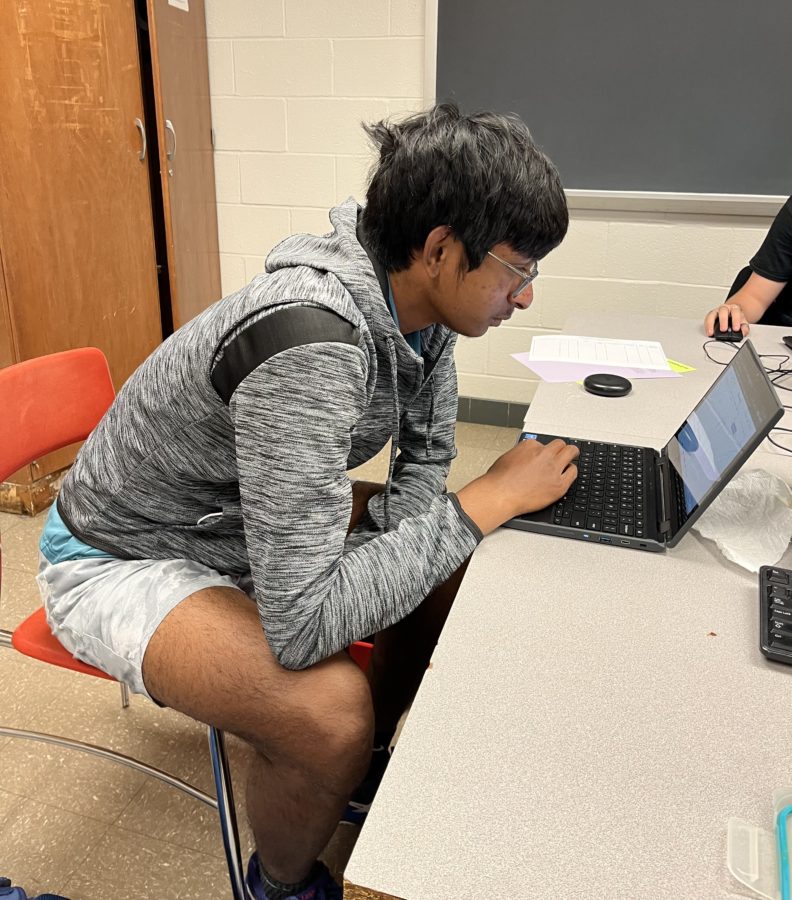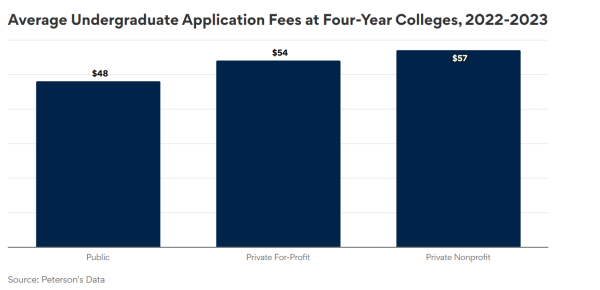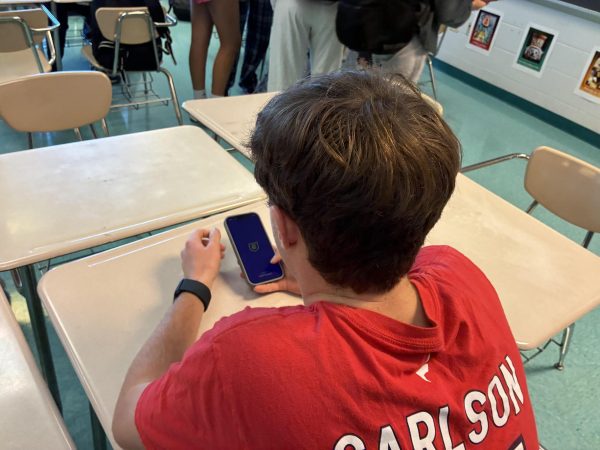Post-COVID test optional, blind policies spark debate over importance of standardized tests in college applications
Junior Dhruv Das studies for the SAT using Khan Academy during advisory.
Standardized assessments like the SAT and ACT have remained a strong factor in the college admissions process. Scores are an objective number to associate with a student. However, with the rise of test optional and test blind within the past years, the weight of standardized tests on college admissions remains up for debate.
The COVID pandemic significantly impacted the importance of the SAT and ACT. “With the exception of very few institutions, many schools became test optional during the pandemic because access to standardized testing was extremely limited. Depending upon the institution, and the program of study, it is my opinion that test scores aren’t as important as they were pre-pandemic,” college and career counselor Kathleen Carr said.
While colleges like the Massachusetts Institute of Technology and Georgetown University require test scores, others are retaining their test optional or blind policies for the foreseeable future, hinting toward a general decrease of the weight of standardized tests for those schools. Standardized tests have raised controversy over being classist, because the students who are wealthy enough to hire a tutor or buy quality prep books are the students who will perform better. “I think it’s unfair that people who can pay for a tutor can do a lot better compared to lower class families. I don’t think the SAT should be considered that much in college admissions because of this,” junior Ayesha Gulati said.
Colleges that are test optional or blind have seen a surge of applicants since they established that policy, as students did not let a low SAT or ACT score stop them from applying. “It’s nice that test optional allows students to not worry as much about their score and still apply to top colleges. While I’m sure the score still matters, students should never feel discouraged from applying just because their score is on the lower end. There are more to us than scores, ” Gulati said.
Since colleges tend to look at a student as a whole, or holistically, students are building up their application in other aspects of their lives like extracurriculars. Carr gives examples by asking “is the student involved in their school community? Are they involved in the community outside of school? Have they taken on leadership roles? Have students taken advantage of the most rigorous courses available at their high schools?”
Students continue to study for the SAT to get an advantage in comparison to the field of applicants. Sophomore Daksh Badri is beginning to prepare for the SAT this summer by using prep books. “I feel more prepared for tests when I start studying earlier, and my sister got a high score and got into a top college, so I want to follow what she did. SAT scores drive competition in my opinion as it is one of the only things I can directly compare to my peers. I know the SAT isn’t everything, but it will definitely help my chances of getting into the colleges I want,” Badri said.
Your donation will support the student journalists of Thomas S. Wootton High School. Your contribution will allow us to purchase equipment and cover our annual website hosting costs.
Naeha is a 2024 graduate.







![Editors-in-Chief Ahmed Ibrahim, Helen Manolis, Cameron Cowen, Alex Grainger, Emory Scofield, Hayley Gottesman, Rebekah Buchman and Marley Hoffman create the first print magazine of the year during the October press days. “Only a quarter of the schools in MCPS have programs that are like ours, a thriving, robust program. That makes me really sad. This is not just good for [the student journalists] to be doing this, it’s good for the entire community. What [student journalists] provide to the community is a faith in journalism and that continues for their lifetimes," Starr said.](https://woottoncommonsense.com/wp-content/uploads/2025/10/wmpoFTZkCPiVA3YXA4tnGoSsZ4KmnKYBIfr18p3l-450x600.jpg)